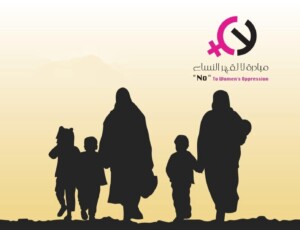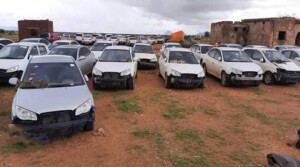US ambassador to Sudan meets with FFC factions
The US ambassador to Sudan, John Godfrey, met Friday, in two separate meetings, with representatives of the Forces for Freedom and Change-Central Council (FFC-CC) and the Sudanese Resistance Committees. In the meantime, the National Accord Forces (NAF) met with prominent members of the Sudanese military on Thursday.
 On September 1, US Ambassador John Godfrey meets with parents of martyrs who died while demonstrating for freedom and democracy in Sudan (US Embassy)
On September 1, US Ambassador John Godfrey meets with parents of martyrs who died while demonstrating for freedom and democracy in Sudan (US Embassy)
The US ambassador to Sudan, John Godfrey, met Friday, in two separate meetings, with representatives of the Forces for Freedom and Change-Central Council (FFC-CC) and the Sudanese Resistance Committees. In the meantime, the National Accord Forces (NAF) met with prominent members of the Sudanese military on Thursday.
According to a statement of FFC-CC following the meeting, Godfrey stressed that the policy of the US government is consistent in supporting the civil democratic transition in Sudan. He explained that joint cooperation between the two countries will resume once the path of democratic transition is restored, led by a credible civilian government and the various forces of democratic transition in Sudan.
FFC-CC representatives affirmed their position that the coup d’etat of October 25 last year is the essence of the current crisis. In the statement, they confirmed that the only way out is a democratic transition and the overthrow of the coup.
Godfrey indicated support of resistance committees' insistence on a new civilian government and their quest for freedom, peace, and justice in a tweet on September 2.
Noteworthy is that Godfrey now spoke about a “civilian government,” instead of a “civilian-led government” for which he has been criticised by Sudanese activists, as the latter means a possible cooperation with the military.
On his appointment to the post on August 24, Godfrey said that the establishment of a civilian-led government is key to facilitating better US-Sudan cooperation.
The mainstream faction of the FFC-CC outlaid their political views in a draft of a new constitutional charter at the beginning of August. In it, the faction confirmed its categorical rejection of any agreement with the military and reasserted its desire to work with the resistance committees in the country but it was not clear if the contents of the two political charters issued by the resistance committees of Wad Madani in El Gezira in January and signed by 15 other states, and of Khartoum in February would be taken into consideration as well.
Military consultations
After announcing their political vision on August 23, the FFC-National Accord, a breakaway faction of the FFC, aka National Accord Forces (NAF), met the tripartite committee of the Sudanese military, headed by Gen Mohamed ‘Hemeti’ Dagalo, on Thursday in the context of military junta holding consultations with Sudanese political actors.
In a press statement on Thursday, a leading member of the NAF, Abdelaziz Oshar, said that the meeting discussed ways to unify various calls and initiatives to overcome divisions put forward by political groups in Sudan, to reach an agreement to create structures and institutions for the democratic transitional period.
Oshar added that the meeting touched on a number of issues related to the unification of the national consensus, and that the two parties will continue to hold consultations. He stressed the importance of reaching a real national consensus in the least possible amount of time.
Two weeks ago, the leaders of the NAF, dominated by Darfur rebel movements which signed the Juba Peace Agreement with the Sudanese government in October 2020, agreed on a political declaration that paves the way to complete the transitional period and prepare for elections. The declaration includes constitutional amendments, criteria for choosing a prime minister and the government, and the proposed programme for the transitional government.











 and then
and then